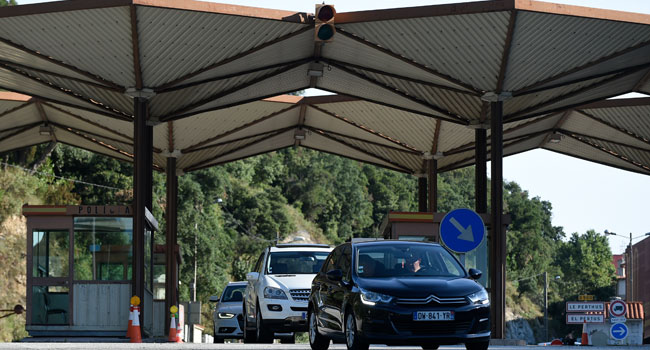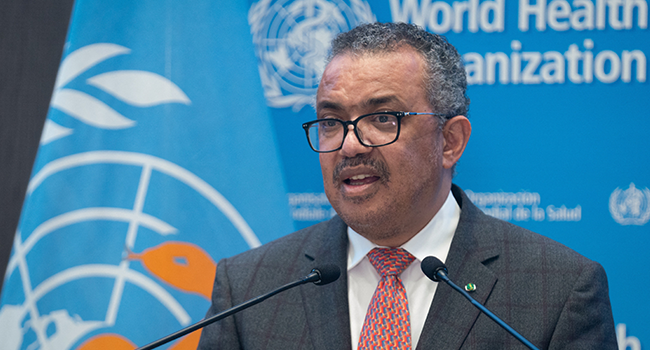
Spain reopened its borders with France on Sunday, getting rid of one of the most potent symbols of Europe’s battle against the coronavirus, as infections in Latin America surged past two million.
Europeans are just emerging from some of the world’s toughest lockdowns, with cars trickling across the reopened Spain-France border early on Sunday a day after Italy enjoyed its first top-flight football match in 103 days.
In the United States, which has also been taking stuttering steps to reopen even as 20 states have reported a rebound in infections, President Donald Trump held his first rally in months on Saturday.
He boasted to the audience in Tulsa, Oklahoma, that he had told his team to slow the rate of testing to reduce the number of registered cases.
“When you do testing to that extent, you are going to find more people, you will find more cases,” he said, even as six members of his advance team tested positive for COVID-19.
He faces re-election as the US deals with a tanking economy and the world’s worst virus outbreak, with almost 120,000 deaths out of more than 2.2 million cases.
Brazil is the second worst-affected country with almost 50,000 deaths and more than one million cases, helping to push Latin America’s total infections beyond the two million mark, according to an AFP tally early on Sunday.
The virus has now killed more than 460,000 people and infected almost nine million worldwide.
‘On our guard’
Although the spread has slowed in Europe, the continent is still the worst-affected with more than 2.5 million cases.
Spain has been among Europe’s hardest hit nations, but on Sunday it lifted a slew of restrictions in a bid to get its tourism industry back up and running.
As well as opening its border with France, officials confirmed that EU nationals, those from the passport-free Schengen zone and Britons would not have to quarantine.
“We must remain on our guard and strictly follow hygiene and protection measures,” Prime Minister Pedro Sanchez said on Saturday, highlighting that the danger has not passed.
In France, millions of children were preparing to return to school on Monday after three months away.
Cinemas and other cultural institutions were also getting set for reopening.
Concert halls and other institutions in Germany, however, have had to slash their events calendars and drastically reduce capacities.
Musicians such as Cristina Gomez Godoy, a member of Berlin’s Staatskapelle orchestra, have taken to playing in highly unusual settings.
“It is a pleasure for us as musicians to play together again, despite the smaller format, and I think the audience will enjoy it too,” she told AFP as she tuned up for a concert with four colleagues in the courtyard of an apartment building in Berlin.
‘Like zoo animals’
Thousands of miles away on the fringes of Eastern Europe, cases have spiked again in Azerbaijan, forcing the government to institute another lockdown — much to the irritation of local workers.
“The government again cages us in like zoo animals and gives not a damn to the consequences,” taxi driver Shahin Mamedkuliyev told AFP.
Clusters have also emerged in Morocco, which is opening a field hospital on Sunday capable of handling 700 patients, and in Beijing.
Local authorities in the Chinese capital have set up more than 2,000 testing sites across the city that had obtained 2.3 million samples, according to state news media.
The Palestinian Authority announced on Saturday it was temporarily closing the cities of Hebron and Nablus in the occupied West Bank after a sharp rise in infections.
Only goods will be allowed in, Palestinian Prime Minister Mohammed Shtayyeh told journalists. Authorities have reported a total of 687 cases in the West Bank, including two deaths so far.
A vaccine remains months off at best despite several trials. Scientists are still learning more about the virus, its symptoms and the extent to which it may have spread before being identified.
AFP




